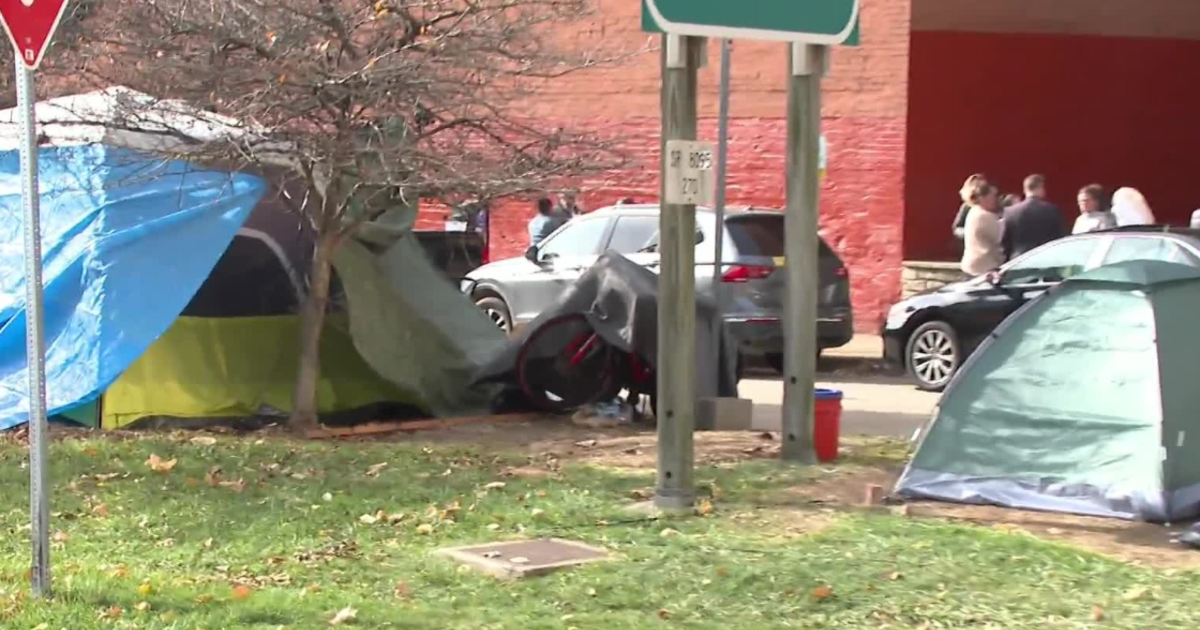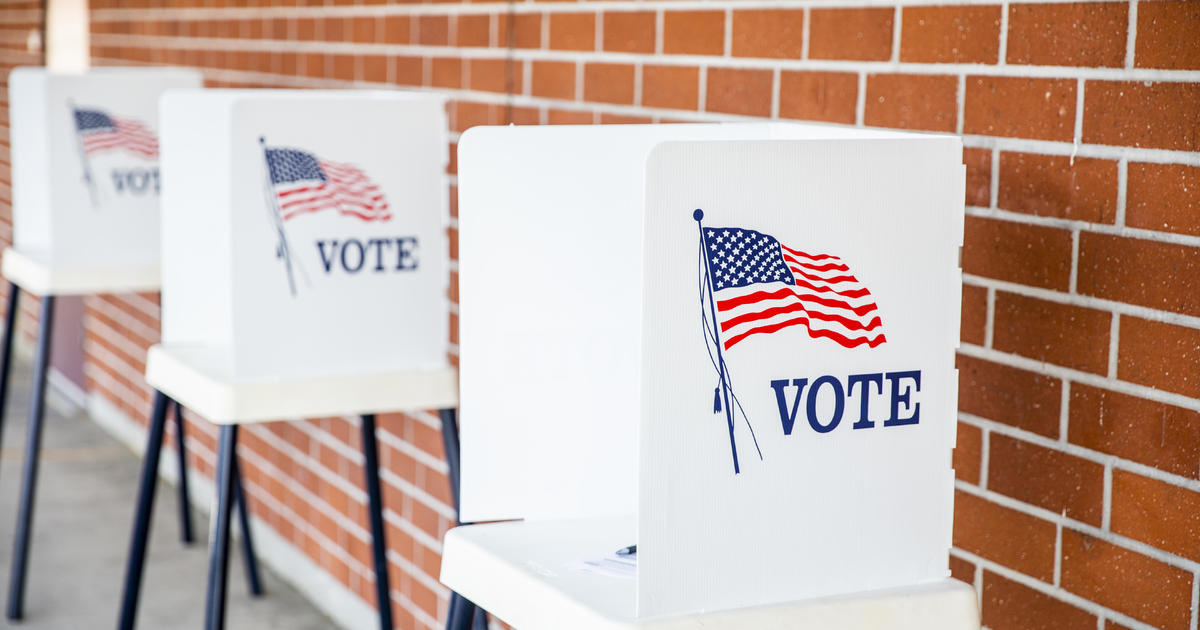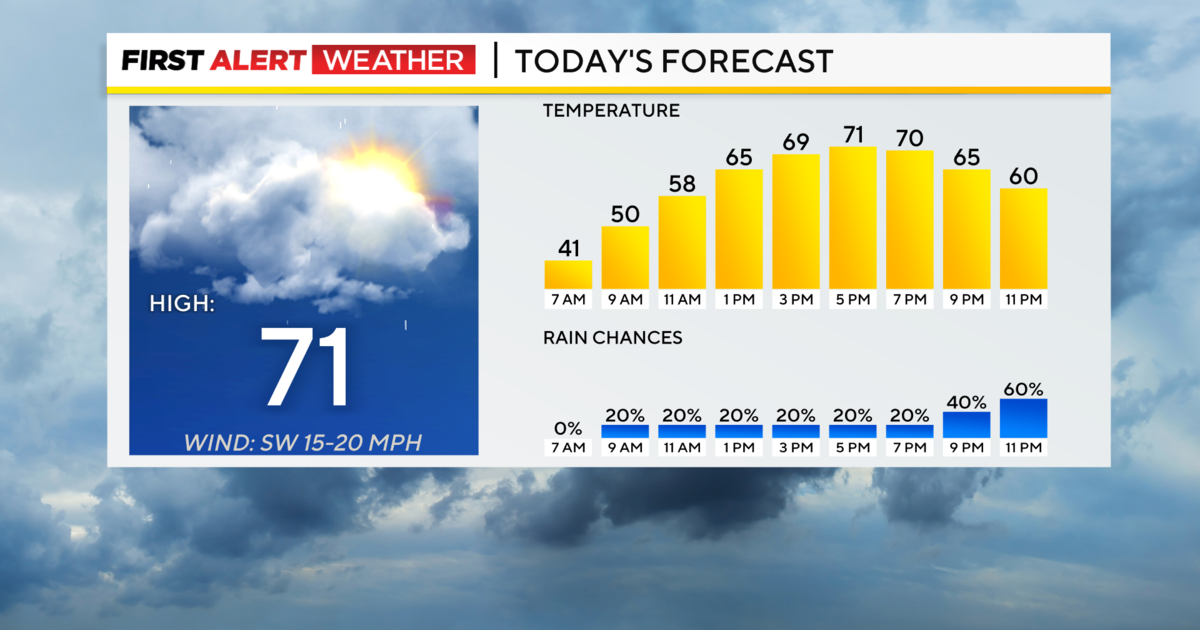Spring's Primary Date At Stake As State Supreme Court Asks Questions At Hearing On Congressional Districts
HARRISBURG (KDKA) - The state Supreme Court held an all-day hearing in Harrisburg Friday on a variety of congressional maps for the commonwealth.
As political editor Jon Delano reports, the court has lots of choices and more than a map is at stake.
When the Republican legislature and Democratic governor failed to reach an agreement on a new congressional map, it fell to the state Supreme Court to approve new districts for Pennsylvania, a task they don't really want.
"This is a failure," says David Thornburgh, chair of Draw the Lines, a citizens' project to draw non-partisan congressional districts. "This is a failure of the process, the relationship between the executive branch and the legislative branch. We knew this was coming."
"It's a tough task because it's really a legislative function that didn't occur because of the breakdown between the governor and the legislature," added Tom King, a Butler attorney who represents Republican citizens at the hearing.
Repeating frequently this decision was being forced on them, on Friday seven justices of the Supreme Court heard oral argument by lawyers pitching thirteen different congressional maps.
The justices asked very specific questions about the maps, noted Cliff Levine, attorney for the Senate Democrats.
"The court has been incredibly attentive," says Levine. "It was noteworthy that we had out-of-town counsel representing one of the parties who handles a lot of these cases that was really complimentary and marveling at the depth of knowledge of the court, in depth questioning and understanding of each of the maps and the statistics behind the maps."
While some maps favor the Republicans and others the Democrats, there were also maps that seemed less partisan.
Another big issue: should the city of Pittsburgh be split to get two Congress members or remain all in one district?
On behalf of a Republican citizens map, King argued keeping the city intact.
"Pittsburgh should not be split. Splitting Pittsburgh violates the constitution of Pennsylvania. I hope that this map would not be a map that splits Pittsburgh," King says.
"Actually splitting Pittsburgh is natural because of the rivers and geography, but it also gives voice. There's 150,000 people in one district, 150,000 in another. It would still be the strongest voice in Allegheny County," says Levine. "There are others though that are trying to keep Pittsburgh intact and then basically create a very strong Republican district [nearby]."
WATCH: KDKA's Jon Delano reports
Deciding how to decide which of thirteen maps to approve was a frequently asked question to which there were multiple answers.
There's more than just a map that's at stake. Last Tuesday, candidates for governor, U.S. Senate, Congress and state General Assembly were supposed to be able to start circulating and filing nominating petitions to run for office, but that was put off by the Court.
Now at risk: holding an on-time May 17th primary.
"I truly hope we can keep the primary date intact. We don't need any more chaos and confusion than we've already had in this process," says Thornburgh.
While the failure of the Republican-controlled legislature and Democratic governor to reach a compromise on a congressional map along with the delay of the Legislative Redistricting Commission in approving new state Senate and House districts could threaten the May 17 primary, the Supreme Court seemed reluctant to do that.
"From the Chief Justice's comments today, it sounds like there will be an expeditious resolution of this situation, and at least based on the congressional map, I don't think this election will be postponed."
King's view was echoed by Levine. Levine predicts the court will keep the May 17 primary but won't allow nominating petitions to be circulated until mid-March.
Delano: "Sounds to me, Cliff, the court from your reading does not want to move the primary date but instead will just allow shorter time to circulate petitions?"
Levine: "Yes. That seems to be where it's going, shaving off a day here or there."
The court heard oral argument on Friday on 13 different congressional maps and in early March will hear legal challenges to the state Senate and House maps approved by the Legislative Redistricting Commission.
Once we have final court-approved congressional and General Assembly districts, predicts Levine, candidates for all offices will get just two weeks to get their nominating petitions signed.
"Very aggressive schedule, but they're working aggressively to reach that," says Levine.
If it sounds like a mess, it is. Hopefully, we'll know the court's timetable soon.
Here's another potential problem: if you're voting by mail, it's possible ballots won't be finalized and mailed out until a few weeks before the election. Stay tuned.



